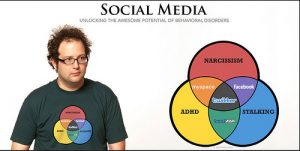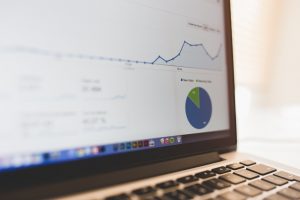Narcissism is the excessive interest in or admiration of oneself and one’s physical appear, this is connected with a craving for admiration and characterising a personality type for your followers.
This is related to social media as individuals are obsessed with looking important, special and to gain attention and status and self-esteem. People who tend to use social media accounts like Facebook, gain more narcissism and they tend to have more friends on Facebook. They also tag themselves more often in photos and update their statuses a lot more frequently than people who don’t suffer with narcissism.
So why do we do it? Why do we care? It is seen that younger adults’ narcissistic tendencies are by acting as a megaphone for their thoughts, while Facebook fuels middle aged adults’ narcissistic tendencies by serving as a mirror where they can present images of themselves. By posting endless amounts of selfies on Instagram or Snapchat, or ‘checking in’ at a specific location on Facebook and exclaiming how “excited” they are. It is apparent that ‘narcissists’ use Facebook and other social media sites because they believe others are interested in what they’re doing at all times, and they want others to know this… again, another boosting and attention seeking opportunity to enlighten your followers with positive things happening in your life.
Is life just a constant competition of who is better than the other?

In general, we all know that social media websites are out there to encourage self promotion, as users are easily able to access their content, so is an excellent opportunity to grab your followers’ attention. However, people can become so obsessive with caring about what other people think, and thrive off being able to be ‘better’ than them in any way.
Relating back to my previous blog post – ‘Compare and Despair?‘ it is the envy that social media provides users to feel that is a major factor of this. Everyone wants to present an unrealistic portrait of themselves, and select the most attractive photos of themselves to use as profile pictures. This is so easy to do. For example, I am sat typing this blog post right now, after updating my Facebook profile picture. I now have the tab open on my laptop to have a sneaky peak of the amount of likes I receive on the photo. Guilty as charged.
The book “The Narcissistic Epidemic: Living in the Age of Entitlement” by Professor Jean M. Twenge in 2009, explained that “in data from 37,000 college students, narcissistic personality traits rose just as fast as obesity from the 1980’s to the present”. This is an extraordinary figure, and shows the outrageous impact and implications that social media can have on our society today.

Self-esteem is rapidly rising, too – according to data published in the Review of General Psychology, 80% of American students scored higher in self-esteem in 2006 than the generation from 1988. This is overwhelming as social media can also make you feel the opposite, self esteem can plummet by the use of social media. Isn’t it surprising how social media can have such oppositional impacts on people?
The unrealistic sunny and ‘perfect’ photo that social media can paint and represent is known to have a negative psychological effect on their friends or followers, so that is why everyone seems to present an unrealistic portrait of themselves, in order to gain as many ‘likes’ and positive feedback as possible. Because, remember: likes = positive minds, in many people’s opinions. This is down to the obsession that social media can provide, and has an impact on the way you over think and feel things.
Current Studies
A study from ‘Psych Alive’ concluded that “students who were more involved with Facebook were more likely to think about other people’s lives were happier and better”. This again refers back to the ‘Compare and Despair’ blog post I have written. People are so obsessed with other peoples lives and compare how good they are compared to their own. This means they are more likely to negatively compare themselves to others.

How do you spot a narcissist on social media?
- Their photos – do their images look like they have had a lot of preparation? Are the girls showing a bit of cleavage and wearing a lot of make up? Are the boys wearing brand new clothing to show and enhance their social status?
- How many selfies they post – are they posting selfies more than 3 times a week for attention? Narcissists seem to post more solo selfies and edit their selfies more often than other people, for attention and “likes”.
- Their friends/followers – how many do they have? As it is has been concluded that narcissist users have more Facebook friends than other users. They like to win Facebook friends like trophies.
- How many posts they have – do they share and post a lot of content? It seems that narcissists share and post more self-promotional posts to gain attention.
- How they type – do they use “I”, “me” or “my” a lot? Narcissists tend to talk about themselves a lot more, meaning that they use a lot of personal pronouns. Do they swear a lot? It has been proven that people with higher levels of narcissism were found to use more angry words, negative emotions and fewer words about social interaction.
- What social media platform they are posting off most – There are more narcissistic users on Twitter than on Facebook, according to a study from 2013. Shawn Bergman and his colleagues found out that college students who scored higher on the Narcissistic Personality Inventory preferred Twitter.

While it is certain that social media does play a part on having an impact on your mental health, especially narcissism, it is critical that something needs to be done. Only by being less self-obsessed and then placing more value on personal relating and posting ‘normally’ can we impart these values to the next generation.